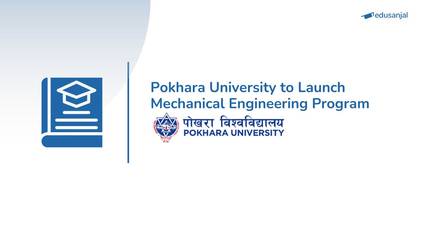Finance Minister Yuvaraj Khatiwada has unveiled a total budget of Rs 1.53 trillion for the fiscal year 2019/20. He has allocated Rs. 134.51 billion for Education, Science and Technology sector.

Major highlights of the budget allocation for education is as follows:
- Free education up to secondary level. 70 districts to be designated the status of fully literate districts.
- 2 bn appropriated for colourful textbooks for primary level. Free day-meals for 2.2 million school children.
- Free sanitary pads for female students attending public schools.
- Over 110 bn allocated for Madan Bhandari Science and Technology University. Science-tech lab to be established in each province.
As mentioned in the speech of finance minister: Budget allocation in Education sector is as follows:
In the coming fiscal year, all school aged children will be enrolled in school through nationwide school enrollment campaign in order to ensure their access to education. Education of up to secondary level will be gradually made free and compulsory. “Literate Nepal” will be announced within two years in collaboration with the Provincial and Local level governments.
A campaign entitled “Let’s Bring All Children to School, Retain and Educate Them” will be carried out for the benefit of children. Locally produced nutritious snacks will be provided to all students up to grade five of community schools that operate in localities with low Human Development Index.
Schools will be made disable and child friendly. Residential education will be provided to students of technical and vocational subjects who come from geographically remote areas. Further research and development of Nepali sign language as well as training and professional development of interpreters will been encouraged. I have allocated necessary funds to establish well equipped residential schools for providing special education in each province to enhance disabled children's access to education.
Madarasha, Gurukul and Monastery education will be brought to the mainstream of modern education. Higher education in all subjects and streams will be made free for children from Dalit and endangered communities.
Technical institutes and schools will be gradually established in all local levels in order to expand the reach of technical and vocational education. I have allocated an additional Rs. 840.30 million to start technical classes in community schools.
I have allocated funds to restructure Council for Technical Education and Vocational Training, expand technical teacher’s training program and provide internship facility to students studying in bachelor's level in technical campuses. Internships in community schools will be made compulsory for students pursuing post graduate in Education.
Existing posts for teachers will be justifiably redistributed on the basis of number of students, subject requirements and geographical conditions. Additional grants will be provided to secondary schools for additional teachers to teach science, mathematics, English and technical subjects.
Rural Telecommunication Fund will be utilized to provide free high-speed internet service to community schools in order to improve the quality of public education through IT friendly education.
Education loan at five percent interest subsidy will be made available for students belonging to economically deprived, marginalized and targeted communities in order to help them pursue higher studies as well as technical and vocational education.
Universities will be developed as the center of educational excellence to gradually make them internationally competitive, specialized and research oriented. The Government of Nepal will provide necessary support to establish such state-of-the art universities. Open University and Alternative Education System will also be expanded.
The academic quality of universities will be gradually improved. Professors will be engaged in research and educational progress. Performance and results will be the basis for providing university grants. For this, I have significantly increased the grant that goes to the University Grant Commission, making it reach Rs.14.36 billion.
Reform measures will be adopted to remove the gap between the quality of government and private sector schools, and to increase the quality of public sector education through the development of necessary infrastructures, use of new technology and improvement in educational standard. Reform measures will also be put in place to improve the school curriculum in such a way that students possess the feelings of nationality, patriotism and social responsibilities.
An umbrella act will be enacted for the purpose of keeping uniformity in the establishment and management of the universities.
Science and Technology
The mission of building modern Nepal will be initiated with the support of scientific research and technological developments. Madan Bhandari Institute of Science and Technology will be established with the objective of making it an international educational center for excellence in Science and Technology.
A law on nuclear energy will be drafted for the secured use of nuclear technology, ionized radiation and for protecting life of people in general from the adverse impacts of such activities.











